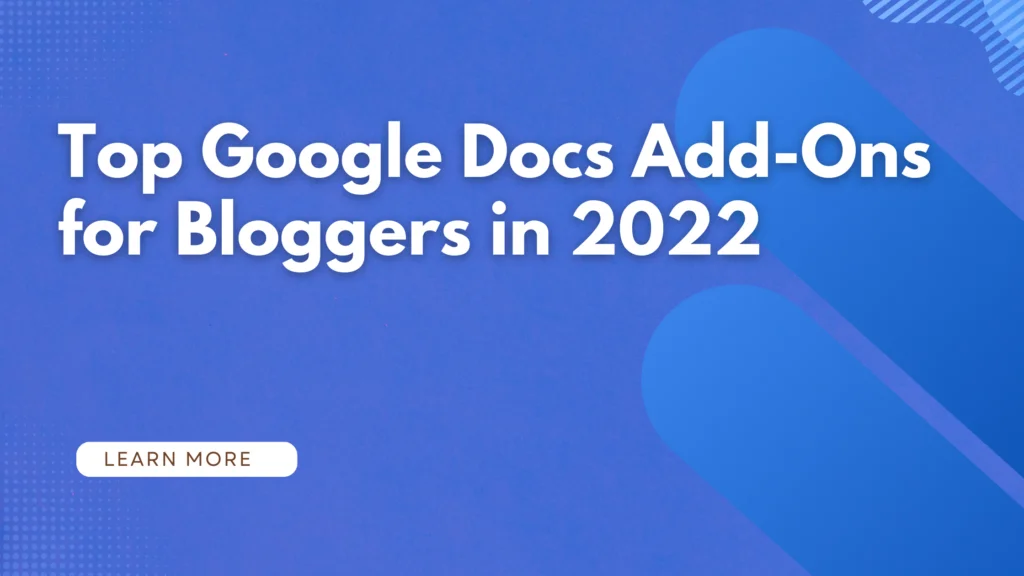When it comes to search engine optimization (SEO) for your blog, keywords are king. They allow both people and bots to understand what your blog and posts are all about.
If you are often stuck because you can’t think of great topics for your next blog post, know that there are processes you can implement to avoid being wedged into writer’s block. Keyword research is both science and art. The good news is it’s something you can learn until it becomes a habit eventually.
What is Keyword Research
In search engine marketing, keyword research is the process of finding the words or phrases people type into search engines like Google relevant to your business, customers, or space. It involves discovering and analyzing which of those keywords or keyphrases are best aligned with your goals.
For example, if your goal is to attract blog visitors who would be interested in a product you are promoting, you’d want to sort and prioritize all possible variants of keywords that your preferred niche is searching for.
This process helps writers make informed decisions before writing content. It gives a more concrete path to your goal that could save you time and effort while generating more traffic and conversions.
Keyword research can answer questions like:
- What do people search for using Google? These could be particular keywords, key phrases, terms, etc.
- How many people are searching those terms? This tells you which keywords are higher in volume, those that are more niche, and those which are less likely to be searched, etc.
- What are variants of the keyword and other related terms people search for? This can provide you with alternate keywords you may want to use on your content.
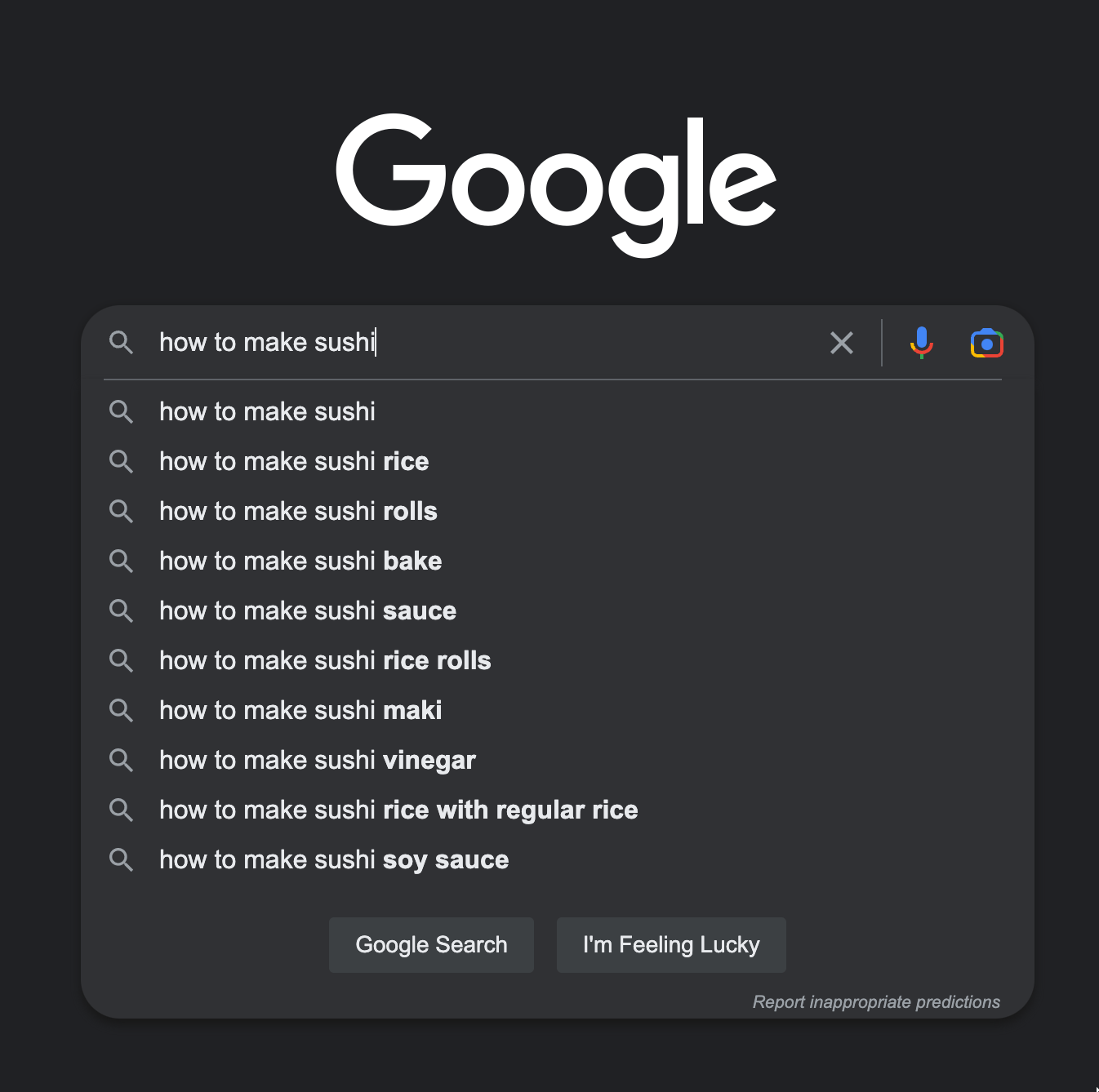
- In what form do they want their information? The keyword phrase may include the format people prefer like videos, web articles, maps, marketplace listings, news, etc.
- From what region are the searches coming from? Your research can tell you from which regions, countries, states, or cities the queries come from. This is very helpful when tailoring your content to a specific location or sets of locations.
The Importance of Keyword Research in Writing Content for Your Blog
SEO is not just for company websites and businesses. If you’re running a blog on WordPress with the goal of ranking up the search engine results page so that more and more people can find you, doing keyword research is more important than ever. It doesn’t matter how big or small your reach currently is. If you intend to monetize your content, get more sign-ups, interactions, sales, or contacts, knowing and having the right strategy means you work less for better results.
Keyword research can help you:
✨ Drive more traffic to your site
✨ Get more leads
✨ Sell more stuff
✨ Build brand awareness
✨ Better understand your core audience
✨ Craft more tailored campaigns
✨ Find additional topics to write about
How to Research Keywords for your Blog Content
Ideally, should always be doing some keyword research for every blog post. There are a number of ways you could do to research keywords for your WordPress blog. Some would involve premium professional and dedicated SEO tools and some would involve general strategy. Let’s go!
Step 1. Start with a Strong Topic
Research a topic you’d want to write about. A topic you’re comfortable diving into and is relevant to your blog’s niche and usually within your expertise is something that won’t feel out of place in your blog. This is a strong starting point which informs the rest of your work and subsequent keyword research.
Find trending searches using Google Trends. Google Trends presents analysis on the popularity of top search queries in Google Search. It helps tell you which ones are just fads and which topics are popular year-round or in a particular season.
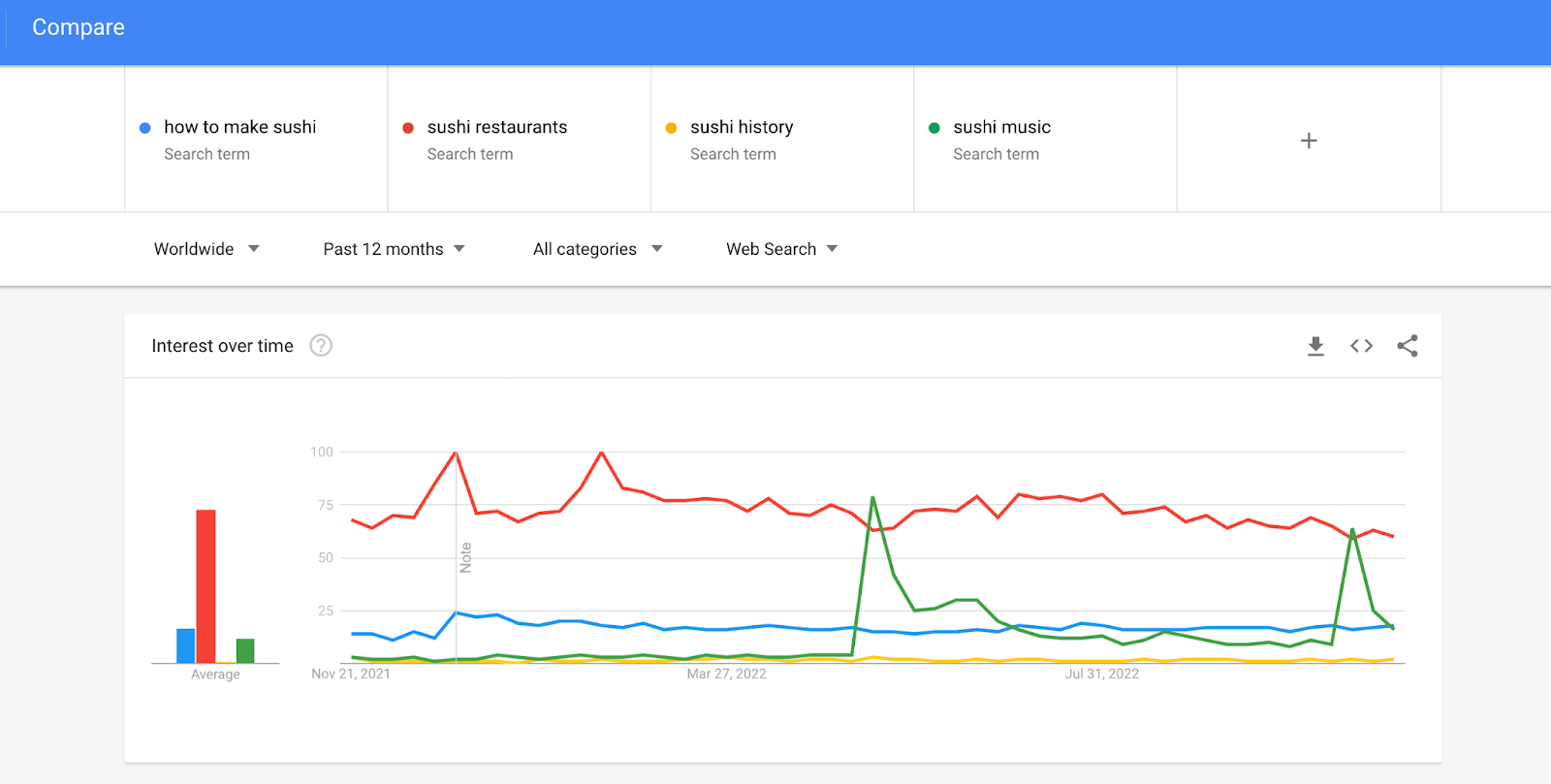
Try to have fun with Google Trends. Take a look at some sushi topics you can cover. To illustrate, we’re using sushi as our topic.
How to make sushi is what home cooks or aspiring ones anyway would search for. Sushi restaurants is for consumers typically looking to book a table. Sushi history is for the curious and the most niche of the bunch which may have less competition.
You can see in the image that sushi music had two huge spikes throughout the past 12 months — very peculiar because who even searches for sushi music? Answer: there’s a popular Harry Styles song entitled ‘Music for a Sushi Restaurant’ that came out May 2022 and a music video that was released October representing the second spike. Should you write about sushi music now? Uhm, unless you’re a music or restaurant blog — probably not — it’s a fad in the grand scheme of trending topics. Meanwhile, how to make sushi is virtually stable.
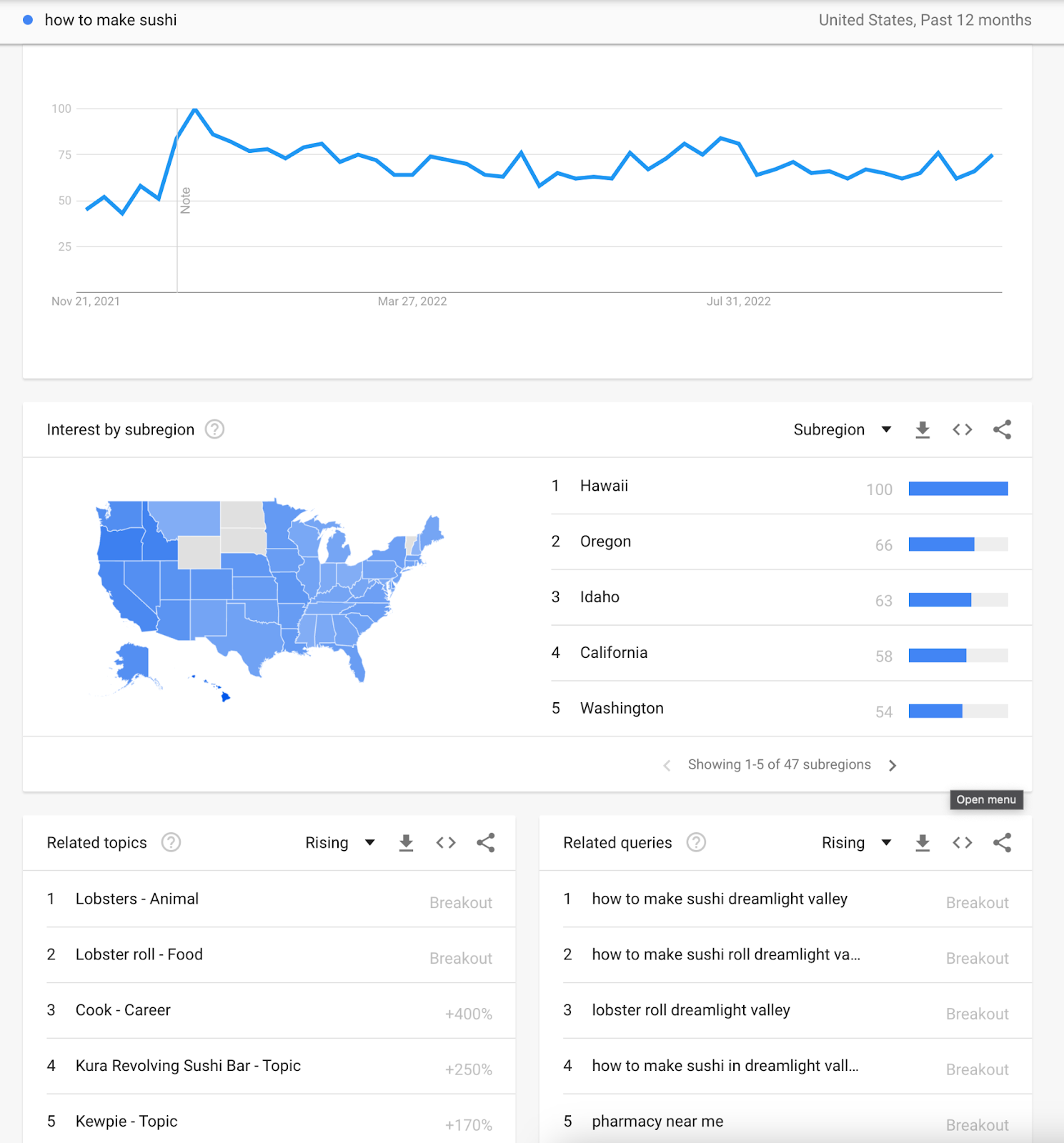
An important disclaimer though, Google Trends is not a complete tool you should rely on for your blog’s keyword research and SEO. But it’s a free and handy tool to quickly audit and compare search terms.
Step 2. Do Keyword Research Using Free Tools
Aside from Google Trends, there are (thankfully) a lot of free and freemium tools you can use. I say thankfully because for many beginners, shelling out hundreds of dollars per month on a technical SEO tool subscription they can barely decode isn’t a very sensible first step when first trying out WordPress blogging.
Here are our picks for Free and Freemium Keyword Research Tools you could try out:
- AnswerThePublic. This is a visual keyword idea generator based on raw search insights. Great for finding keywords to target or build upon.
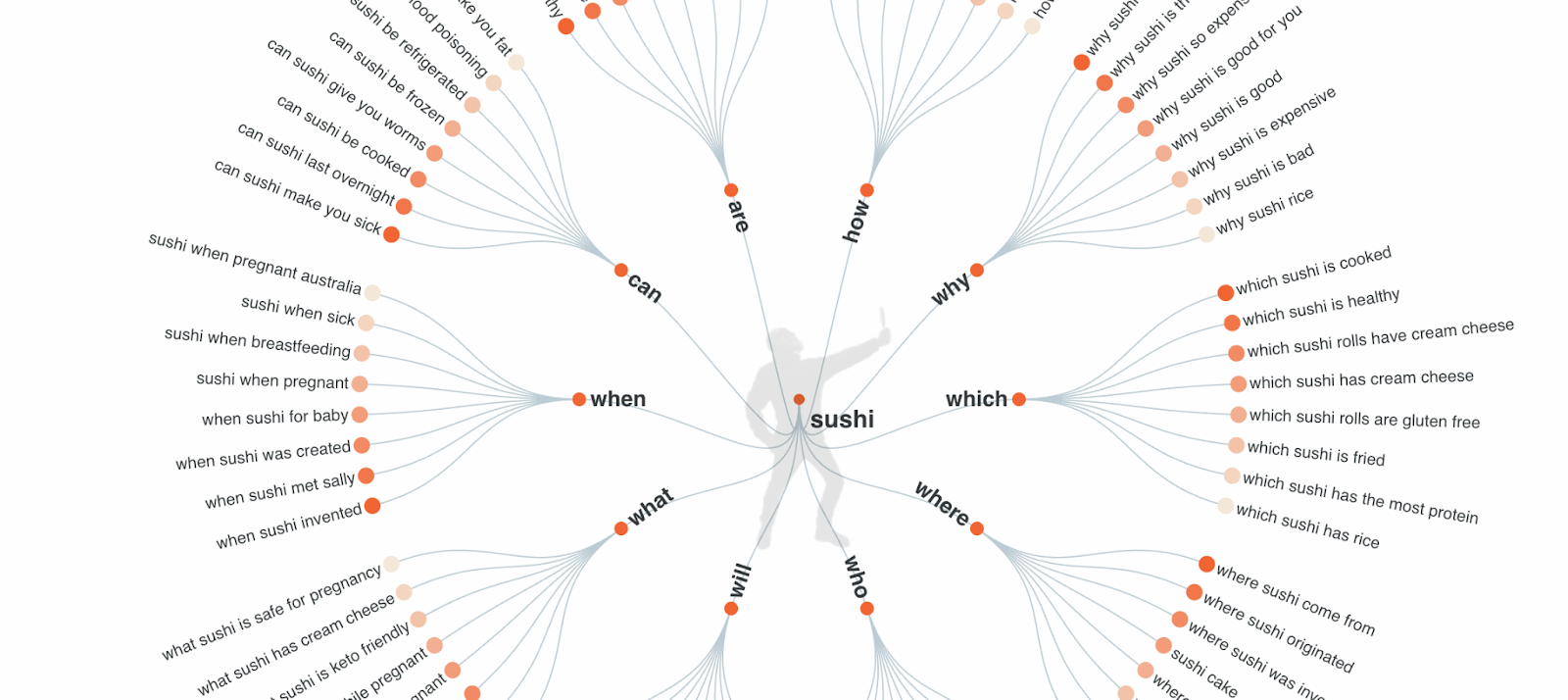
- Keyword Surfer – Chrome Plugin. Fantastic free tool for beginners for basic SEO research for blog topics.
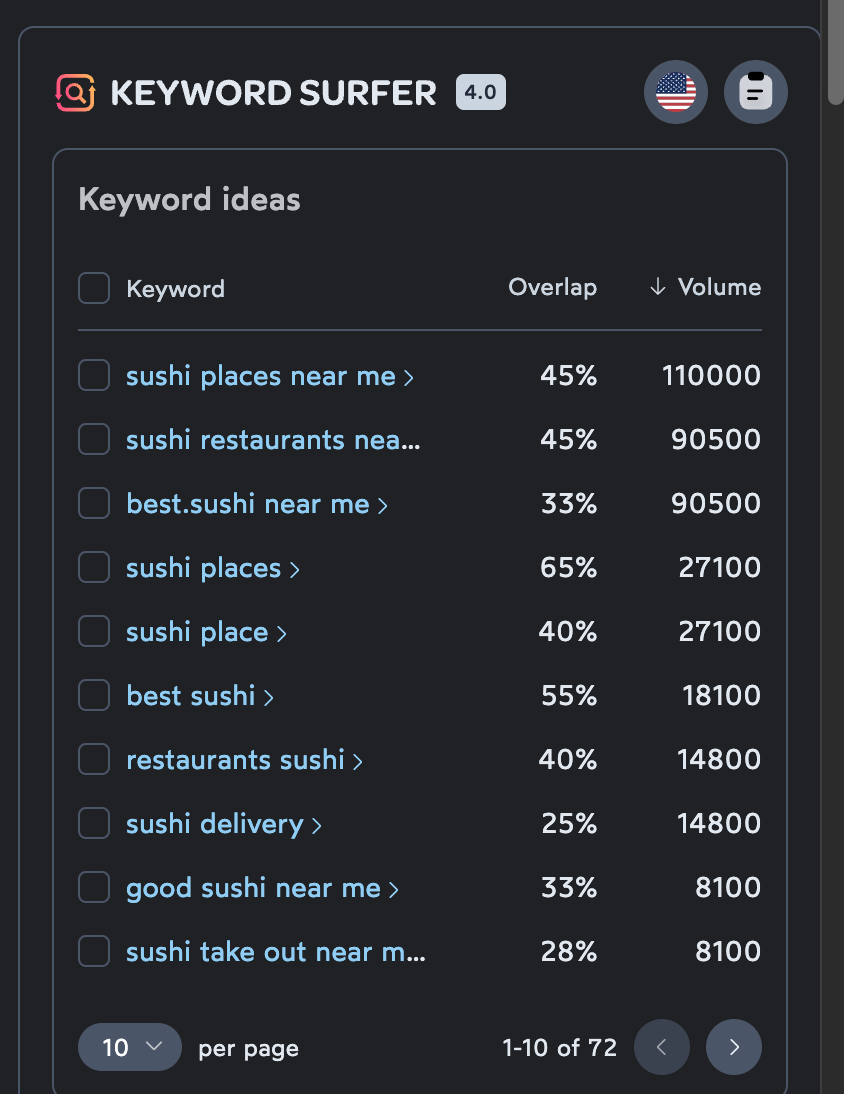
- Keyword Planner. A free tool built into Google Ads Platform used to discover related keywords with details such as average monthly searches, competition rating, and even average bid for Google Search ad placements.
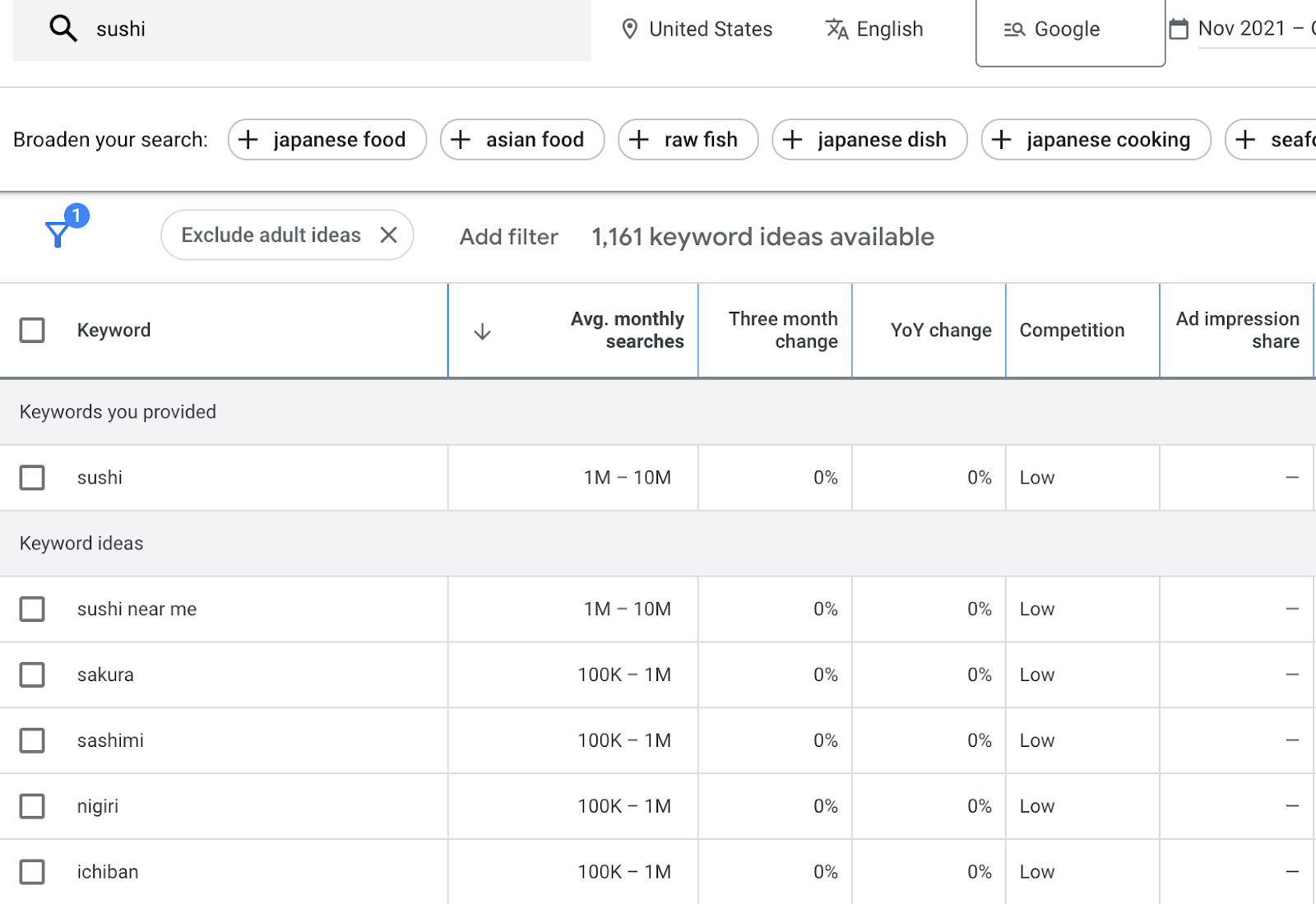
Best Practices for Keyword Research for Blogging
When researching topics and keywords for your WordPress blog posts, there are best practices you’d want to apply to make your work more intentional and efficient. Here are some of them:
- Know your audience. Even before you dive into topic and keyword research, you must identify who comprises your target audience and who visits your blog.
Ask yourself questions such as
- What do my viewers care about?
- Why are they here?
- What problems can I (or my product) help them solve?
- What are their other interests?
This might as well be your most important research before you commit hours upon hours of work making content. With the answers to these questions, you’ll be able to provide higher value to your readers.
Let’s paint some examples.
- People who are searching for “how to make sushi” could be home cooks who’d like to try out how they can make sushi at home — possibly to save expenses, to try out a new hobby, or even start their own sushi business.
- Moving out of the sushi example, people searching for “keyword research for blogging” like you are probably quite new to the space and looking for tips and tutorials to improve the quality of content you make for your readers. You might also be interested in saving time and streamlining your blogging workflow so you can focus on other aspects of your business.
Don’t be afraid to actually talk to your readers by phone or email if you are able to. This would help you make better content for them.
- Research your space. Identifying which space your WordPress blog occupies and the categories it belongs to is crucial to make sense of your competition and what business decisions you may have to make to grow your blog.
Ask yourself questions like
- What exactly is this space?
- Who are my competitors?
- What are other bloggers writing?
- What are my competitors selling?
- What topics have been popular in this space?
You should always do a research into your competitors to gain insight about where you’re possibly headed and how you can differentiate yourself as a better alternative to capture market share.
2. Don’t be afraid to do popular topics or keywords. Even if keywords have already been done by several others in your niche, don’t be dissuaded to think that you have nothing better to add. With creativity and resourcefulness, you could frame or rehash a popular topic with new perspectives or new information that’s new to your readers. Even your personal experience can be detailed to create content that is more grounded in reality (think titles like “The Truth About x” or “How Making Sushi at Home Changed my Life”) You would be competing with a lot of pre-existing resources, for sure, but if you have a nice catalog of work and great content to squeeze into your titles, your viewers will reward you with hard-earned trust and loyalty.
Conclusion on How to Do Keyword Research for Your WordPress Blog
Now that you’ve learned some of the tools and best practices for when you’re doing keyword research for a WordPress blog you’re running, you are better equipped to save time and provide higher value to your readers. Remember that keywords are king in content creation but research is the kingmaker. We hope you’ll find your next topic discovery less of a guesswork and more of a highly-educational process.
Save More Time Blogging on WordPress by Using DocPress
If you’re like most people who are already accustomed to writing on Google Docs, then check out DocPress.
Did you know that you might be wasting 20 to 30 minutes of your time per article just copying and pasting from your word processor to WordPress? That’s a lot of time you could better invest in researching or writing or finding inspiration or even doing things in your personal life.
By using DocPress to publish, you save time by publishing directly on Google Docs. Write your blog post on Google Docs and use the free add-on you can download here.
DocPress also includes an SEO tool that analyzes your content for eight SEO key points like word count, target keyword in titles and headings, alt text for images, and more.
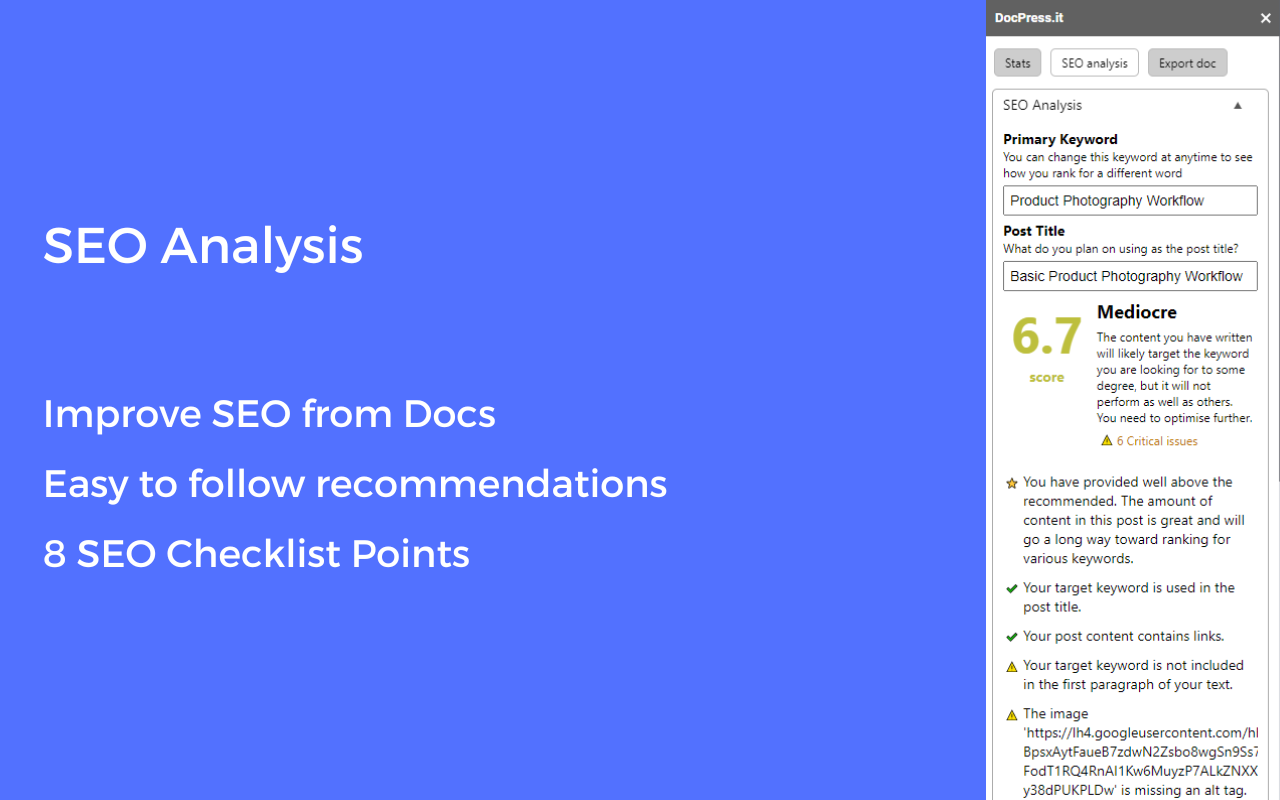
Subscribe to our newsletter below to get amazing new articles, promos but also tips and tricks.




